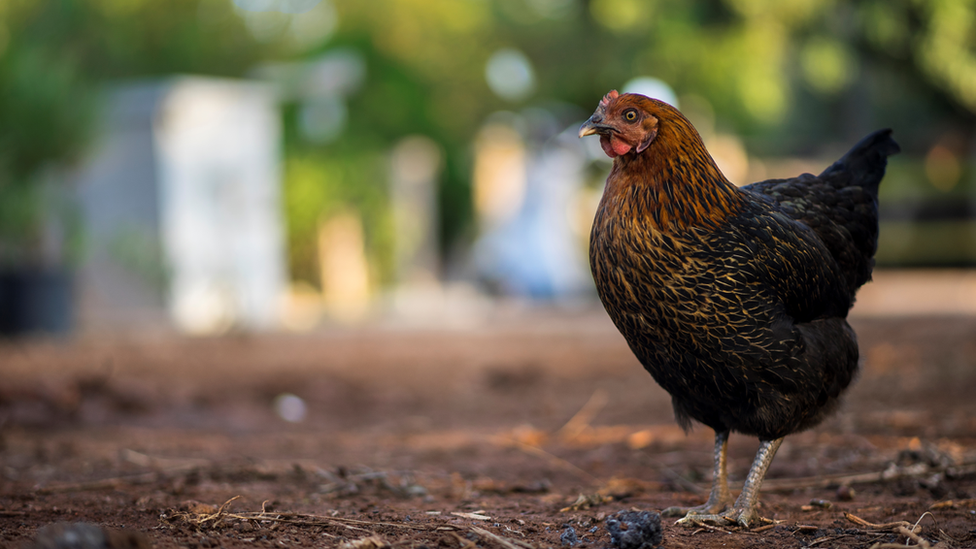Asian hornet warnings for Essex beekeepers
- Published
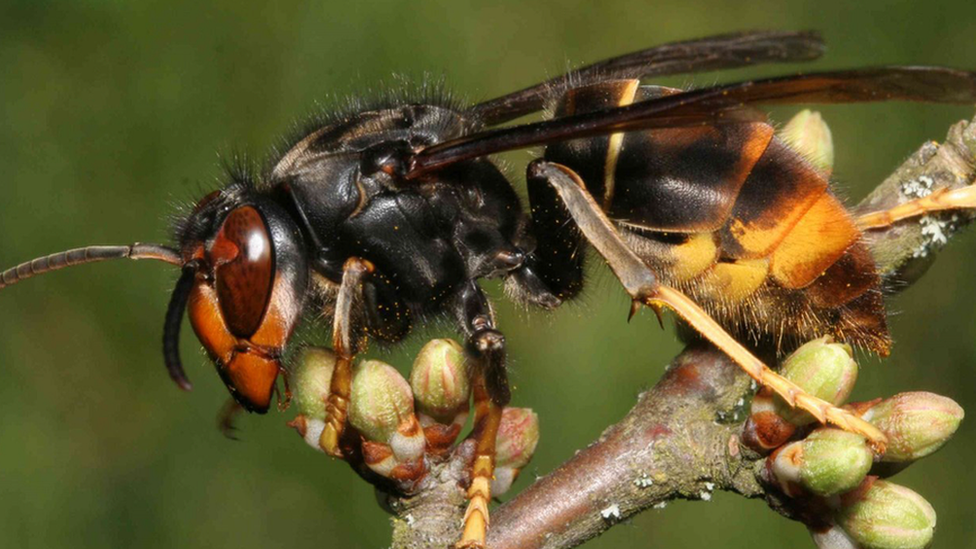
Asian hornets were first spotted in the British Isles in 2016
Beekeepers are being warned to remain vigilant over the presence of Asian hornets.
The Department for Environment, Food and Rural Affairs (Defra) said the flying insects had been spotted in Rayleigh, external in Essex.
The species pose no greater risk to human health than the native wasps and hornets.
However, they are known to be predators of other insects such as honey bees, and can raid hives and eat them.
"By ensuring we are alerted to possible sightings as early as possible, we can take swift and effective action to stamp out the threat posed by Asian hornets," said Nicola Spence, Defra's chief plant and bee health officer.
"That's why we are working at speed to locate and investigate any nests in the area following this confirmed sighting.
"While the Asian hornet poses no greater risk to human health than other wasps or hornets, we recognise the damage they can cause to honey bee colonies and other beneficial insects."
Richard Ridley, an ex-chairman of the Essex Beekeepers' Association from Saffron Walden, said: "I would be concerned if I was living anywhere in Essex. Asian hornets are destructive and we would rather they stayed the other side of the channel. They can decimate hives and hugely reduce honey yields. They hover outside of the hives and picks them off one by one."
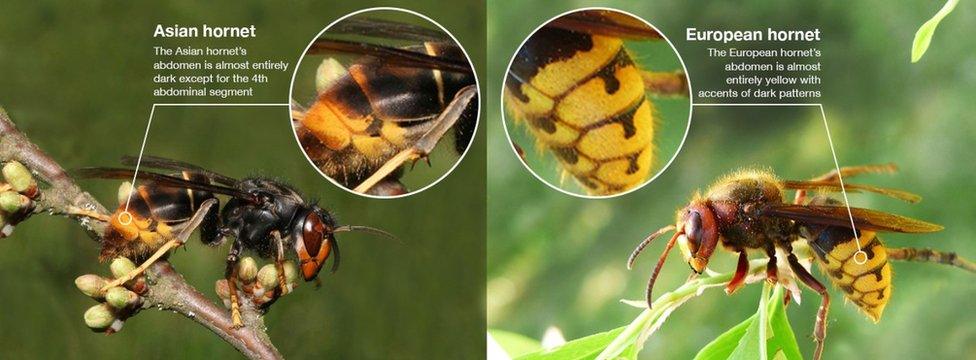
Asian hornets' abdomens are darker than those of European hornets, which are also known to eat honey bees
The insects first turned up in Europe in 2004, and were believed to have arrived in a shipment of goods imported to France.
They were first sighted in Britain in 2016 in Tetbury in Gloucestershire, and the last sighting, of a single Asian Hornet, was reported in Felixstowe, Suffolk, in April this year.
A record number of Asian hornet nests have been found in Jersey.
The queens reach up to 3cm (1.2in) in length.
The public have been advised not to approach or disturb a nest, and were being asked to report a sighting via the Asian Hornet Watch mobile app or by using a form on the UK Centre for Ecology and Hydrology website, external.
Alternatively, email alertnonnative@ceh.ac.uk, external.

Find BBC News: East of England on Facebook, external, Instagram, external and Twitter, external. If you have a story suggestion email eastofenglandnews@bbc.co.uk, external
- Published9 August 2022
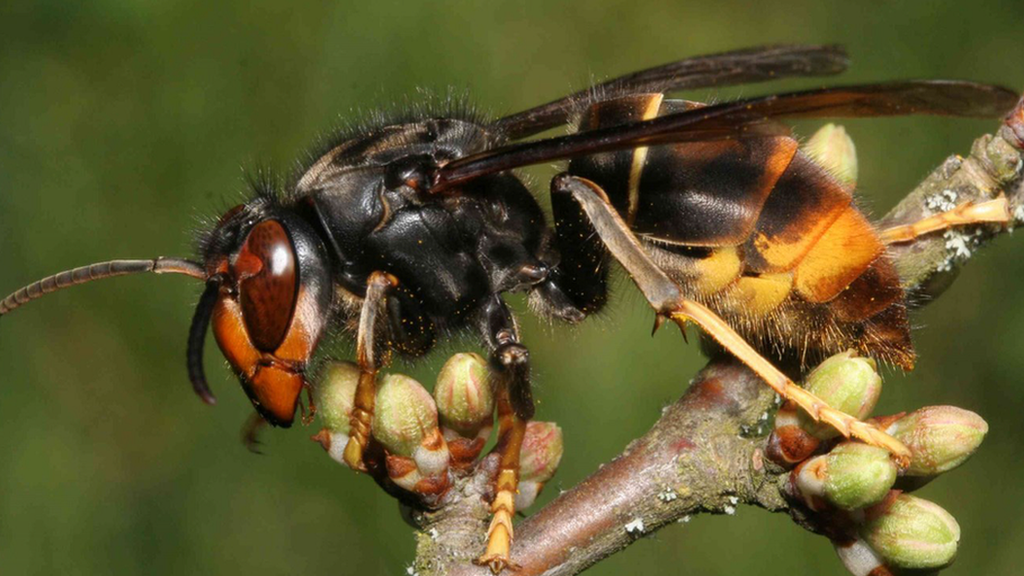
- Published17 April 2022
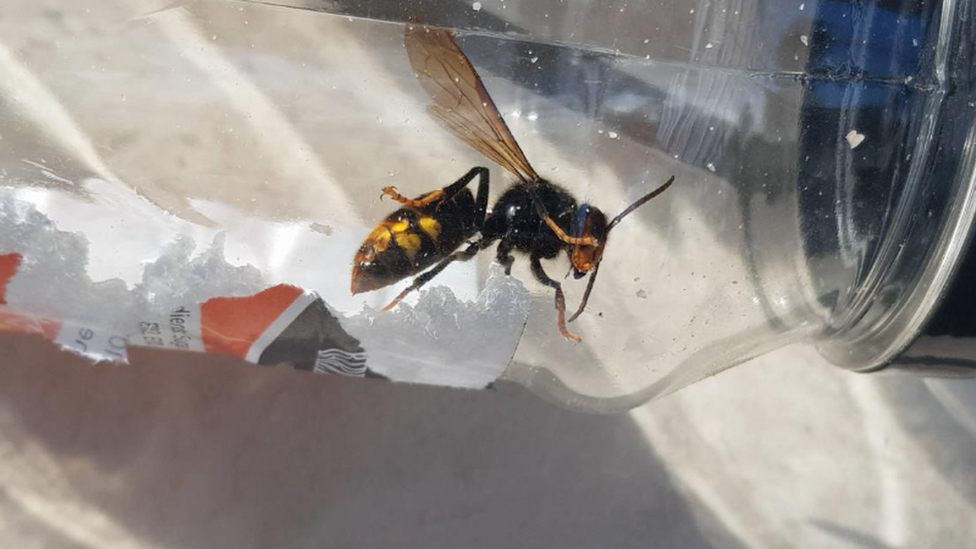
- Published3 November 2021
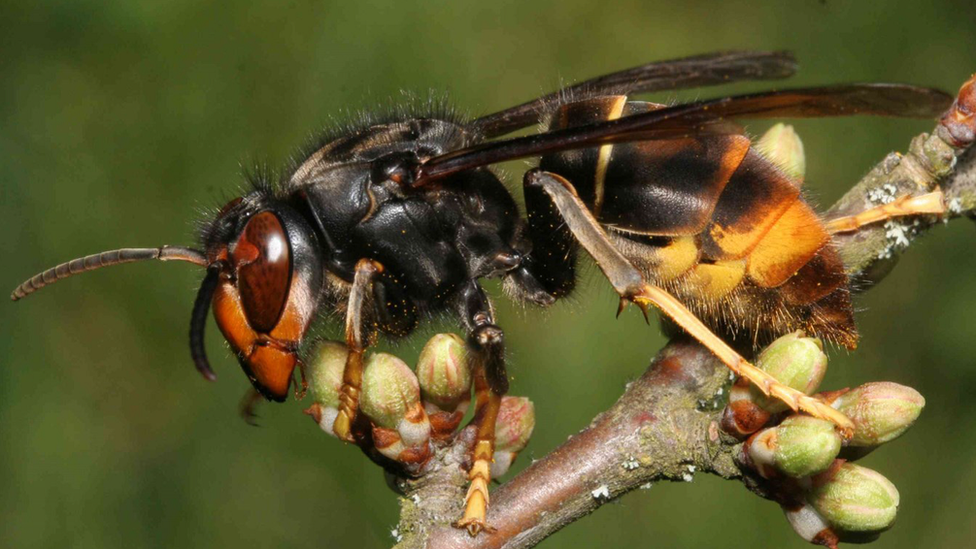
- Published27 September 2022
